Larry is a plant geneticist and breeder whose lab uses genomic tools to better understand hybrid vigor, sex determination, and pest and disease resistance in shrub willow bioenergy crops. More recently, he has been leading Cornell’s hemp research and extension team and has initiated a long-term breeding and genomics program to develop new hemp cultivars for New York State. He received his B.S. in Biology at Cornell University, Ph.D. in Genetics at Michigan State University, and was an NSF Postdoctoral Fellow at UC-Davis.

Hemp Genetics and BreedingCornell Certificate Program
Overview and Courses
With applications ranging from textiles to CBD and health foods to fuel, the hemp industry in the United States is booming. In order to keep up with the rapidly growing demand for seeds, hemp breeders and seed technicians are highly sought after, and significant growth in employment opportunities is expected to continue into the next decade.
This certificate program will cover the essential elements of starting a successful hemp breeding program. You will gain a deeper understanding of plant genetics and how they are applied to crop improvement. By combining both traditional and modern breeding techniques, you will design a plan to produce a crop with a desired combination of traits to help your plant succeed in a particular environment. From there, you will discover how to evaluate the success of a breeding trial — a process which is particularly complex when tracking and evaluating multiple traits of interest. As you gain a deeper understanding of plant intellectual property law, you will also plan how to appropriately protect your new variety. To complete your certificate, you can choose the focus area most relevant to you and your personal or professional needs, including food product development, entrepreneurship, or business management. By the completion of the program, you will have acquired a strong foundation in hemp genetics and be ready to create an effective breeding program.
Familiarity with college-level biology, plant science, and basic descriptive statistical calculations will help you be successful in this program. For the best experience in this program, it is strongly recommended to take these courses in the order that they appear.
NOTE: Cornell University, as a federally funded institution, cannot accept payment directly from cannabis companies. If you are affiliated with a cannabis business, please enroll and pay all fees as an individual. If you have questions about enrollment, please email us at info@ecornell.com.
Course list
In this course, you will examine the variety of breeding methods and breeding schemes available to help you alter the traits of your hemp crop. Each of these techniques has particular applications as well as benefits and drawbacks, so it is critical to understand when each technique is most appropriate. Once you have mastered the application of these techniques, you'll develop a potential breeding plan that is focused on a single trait of interest. In the real world, your lineage will likely need improvement in multiple connected traits, so you will explore different techniques to achieve this more complex goal. Finally, once a breeding trial has been done, you'll need to evaluate whether or not it is successful. As part of this course, you will use actual data provided by Cornell researchers to evaluate whether or not their breeding trial worked.
You are required to have completed the following courses or have equivalent experience before taking this course:
- Hemp Genetics
In some cases, a trait of interest does not exist or is not easily available to the breeder. In this course, you will analyze how new genetic engineering and genome editing technologies can be applied to hemp breeding. Understanding when and how to use new genetic technologies is essential for a modern plant breeder. You will examine these new technologies — one of which, the gene gun, was invented at Cornell University — and practice applying them to hemp breeding. Creating a new hemp variety is a lot of work, and as a breeder you'll want to protect your investment with the appropriate intellectual property (IP) protections. As this course concludes, you will compare the different classes of IP protections and evaluate how they can best be used to protect different types of breeding results.
You are required to have completed the following courses or have equivalent experience before taking this course:
- Hemp Genetics
- Hemp Breeding and Selection
Food innovators often introduce new and exciting quality products to the food industry. While ensuring the quality is right and consistent, food innovators must also ensure their products are safe and that they meet all federal and state safety standards.
In this course, you will explore the different types of safety hazards that can exist in food products that can lead to human injury or illness. Using a hazard assessment tool, you will consider the full food production process and identify the potential physical, biological, and chemical hazards of a food product and how these potential hazards can best be prevented or controlled. Once you have determined the key quality attributes that should be defined for a food product, you will create an initial indication of the metrics for each. By the end of this course, you will be prepared to integrate both food safety and quality consideration into the decisions surrounding product formulation, processing method, packaging material, and product shelf life.
You are required to have completed the following course or have equivalent experience before taking this course:
- Market Research and Product Development
When envisioning the look and feel of your new food product packaging, it is important to consider not just the design but also the safety and quality needs associated with the food processing and packaging process.
In this course, you will explore the different methods and techniques of food processing and packaging to determine which are appropriate for different food products. You will consider the numerous factors that contribute to a processing and packaging decision such as access, capital, feasibility, shelf life, and market preferences. Leveraging these factors and more, you will be able to determine the appropriate methods for your food product or innovation and map out the specifications needed for your product prototype.
You are required to have completed the following courses or have equivalent experience before taking this course:
- Market Research and Product Development
- Food Safety and Quality
Every startup has an element of risk. Whether you are an entrepreneur or a new investor, you need to be able to articulate a business model and evaluate how it would fit with an investor type so you can identify good opportunities for investment.
In this course, you will complete a strategy framework that will help you assess the viability of a startup. By assessing and evaluating the total available market and served available market, you will conduct a target market estimate to project your product or service's potential market size. You will also create a milestone chart that helps you identify the human and capital resources necessary to launch a startup. Your compilation and review of this work will help you evaluate the specific type of investment your project needs.
In this course, you will learn how to navigate the process of pitching a startup investment opportunity in order to gain investor interest. Through opportunities to both build and evaluate a pitch, both entrepreneurs and investors will gain insight into each other's perspective. In this course, you will analyze a real-world pitch to see how closely it conforms to the recommended format for a great pitch. You will then select three potential investors online and explain why they would make a good fit with your own or a selected opportunity. Finally, you will build a partial pitch deck based on selected key concepts, and then partner with a peer from your cohort to deliver, evaluate, and strengthen those pitch deck slides. By the end of this course you will have the confidence you need to create or assess a startup pitch.
You are required to have completed the following course or have equivalent experience before taking this course:
- Startup Viability and Funding Options
In order to safeguard the opportunity or investment before the deal is closed, certain steps like incorporation, structuring future investment, and creating a term sheet serve as protection for the interests of both parties. These assets and processes lend structure to the deal.
In this course, you will recognize the tradeoffs, risks, and implications of different legal investment structures and determine the right time and circumstances for switching those structures. Working with a sample startup, you will identify both appropriate and inappropriate forms of incorporation for the opportunity. You will determine the most appropriate legal structures for both non-equity and equity investment scenarios. You will then identify which sources of investment should be sought at the different phases of the business cycle. Finally, you will list the documentation required at each business cycle phase to close the deal.
You are required to have completed the following courses or have equivalent experience before taking this course:
- Startup Viability and Funding Options
- Pitching Your Business Opportunity
In any organization, sales and marketing go hand in hand. Like sales, unless you are well versed in the marketing field, it can feel foreign to you. At some point in your career, you may be asked to provide input for your organization's marketing efforts. While just about anyone can give feedback, knowing the core concepts that go into marketing can help your input be more effective and comprehensive.
In this course, you will explore the relationship between an organization's brand and the value of the products it offers. You will examine the product's life cycle and the importance of market research. You will identify the roles within marketing teams and how these can vary based on the size and age of an organization (startup vs. established). From there, you will dive into identifying your customer base and crafting your marketing message.
Once you are ready to go to market with your product, you need to develop your go-to-market strategy and determine how to reach your target customers. When going to market, it is important to consider your product's pricing by exploring the various revenue models and pricing tactics to identify which ones can help you reach your product goals. And how will you monitor the performance of your product once it is on the market? That is where key performance indicators (KPIs) come into play. You will explore their importance and how best to use the information gathered from them.
How It Works
- View slide #1
- View slide #2
- View slide #3
- View slide #4
- View slide #5
- View slide #6
- View slide #7
- View slide #8
- View slide #9
Faculty Authors
Dr. Olga Padilla-Zakour is a professor in the Food Science Department at Cornell University, Director of the Cornell Food Venture Center, and Managing Director of the Institute for Food Safety at Cornell University. She devotes her time to mentoring students and colleagues, supporting the food industry with direct assistance and educational programs, and conducting applied research to enhance the safety and quality of plant-based food products. Dr. Padilla-Zakour’s academic foundation and industrial experience have been fully integrated into her professional work, which has positively impacted 3,000 processors and entrepreneurs for the commercialization of more than 12,000 food products. In 2017, Dr. Padilla-Zakour received the CALS Alumni Association Outstanding Faculty Award. She was awarded the Food Science Advisory Council Teaching Excellence Award by Cornell University Food Science Advisory Council in 2016 and was elected an Institute of Food Technologists (IFT) Fellow in 2014. In 2013, Dr. Padilla-Zakour received the Elizabeth Fleming Stier Award from the IFT and the William V. Hickey Memorial Award from the New York State Association for Food Protection.
Dr. Padilla-Zakour earned her undergraduate degree in Food Technology from the University of Costa Rica and her M.S. (1988) and Ph.D. (1991) in Food Science and Technology from Cornell University.
Ann Charles Vegdahl went to the University of Connecticut, where she earned a B.S. in Molecular and Cell Biology in 2011. She went on to pursue her Ph.D. in Microbial Biology at Rutgers University in 2017. Dr. Vegdahl’s research primarily focuses on microbial contamination of fresh produce and quantitate microbial risk assessment. She currently works as an Extension Associate and Process Authority at the Cornell Food Venture Center, where she provides assistance in food safety and stability as well as regulatory compliance to small food manufacturers in New York state, helping to bring new food products to the market yearly. On personal note, Dr. Vegdahl enjoys a fresh cup of coffee in the morning, spending time with her family, knitting/crocheting, and running.
Bruno Xavier is a food engineer with a Ph.D. in Microbiology (Cornell University, 2008). He previously worked as a postdoctoral associate at the Milk Quality Improvement Program (Cornell University, 2008-2009) and as a university professor (UFSJ, 2009-2016), where he taught courses related to biotechnology and industrial microbiology. Dr. Xavier currently works as a Senior Extension Associate and Process Authority at the Cornell Food Venture Center, which provides training in food processing and safety to food manufacturers and regulators as well as product development and safety validation services to food companies in New York state and beyond, helping to bring more than 2,000 products to market yearly.
Cynthia James received her B.A. in Design of the Environment from the University of Pennsylvania and her M.S. in Sustainable Food Systems from Green Mountain College. Originally from Reading, Pennsylvania, Ms. James has been working in the field of sustainable food systems for over 20 years. Her work has included growing organic food for direct-to-consumer markets in both urban and rural settings, as well as developing and conducting education programs for new farmers, urban gardeners, college students, and youth. Before relocating to New York with her family in 2017, Ms. James spent six years at the Rodale Institute in Kutztown, PA, where she designed and ran a community-supported agriculture (CSA) model that focused on bringing affordable fresh food to underserved urban communities and doubled as a training program where new farmers gained skills in diversified organic growing practices as well as business planning. When Ms. James joined Cornell’s Food Venture Center team in 2018, she expanded her knowledge base from raw agricultural products to value-added products by working with the Process Authority in helping to validate food products for safety and stability. She currently manages the development of the program’s online certificate training program.
Tom Schryver is the Executive Director of the Cornell Center for Regional Economic Advancement (CREA) and a Visiting Lecturer at the Johnson Graduate School of Management. CREA’s programs include Rev: Ithaca Startup Works, the Southern Tier Startup Alliance, and support of Cornell’s regional economic advancement efforts. Mr. Schryver leads the Upstate NY I-Corps Node and is the lead instructor for Cornell Engineering’s Commercialization Fellows program. He serves on the teaching team for eLab, Cornell’s student business accelerator, and teaches entrepreneurship and business strategy at Cornell.
Mr. Schryver is an experienced entrepreneur, having served as a startup founder and senior finance executive of high-growth companies. Previously, he was Director of Finance for the Triad Foundation, where his responsibilities included investing the Foundation’s $250m portfolio to top-quartile returns. Mr. Schryver’s board affiliations include the Cornell Agriculture and Food Technology Park and Tompkins County Area Development, and he serves as board vice-chair of the Business Incubator Association of New York State.
Andrea Ippolito is a lecturer in the Engineering Management Program at Cornell University as well as the founder and Director of Women Entrepreneurs Cornell (W.E. Cornell). Additionally, she is currently the founder and CEO of SimpliFed, a company supporting every family on the baby-feeding journey.
Prior to joining Cornell, Ms. Ippolito served as the Director of the Department of Veterans Affairs Innovators Network within the VA Center for Innovation. She completed her M.S. in Engineering and Management at MIT. Prior to MIT, Ms. Ippolito worked as a research scientist within the Corporate Technology Development group at Boston Scientific. She obtained both her B.S. in Biological Engineering in 2006 and Master’s of Engineering in Biomedical Engineering in 2007 from Cornell University.

Larry is a plant geneticist and breeder whose lab uses genomic tools to better understand hybrid vigor, sex determination, and pest and disease resistance in shrub willow bioenergy crops. More recently, he has been leading Cornell’s hemp research and extension team and has initiated a long-term breeding and genomics program to develop new hemp cultivars for New York State. He received his B.S. in Biology at Cornell University, Ph.D. in Genetics at Michigan State University, and was an NSF Postdoctoral Fellow at UC-Davis.
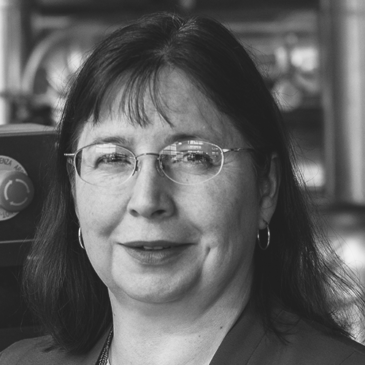
Dr. Olga Padilla-Zakour is a professor in the Food Science Department at Cornell University, Director of the Cornell Food Venture Center, and Managing Director of the Institute for Food Safety at Cornell University. She devotes her time to mentoring students and colleagues, supporting the food industry with direct assistance and educational programs, and conducting applied research to enhance the safety and quality of plant-based food products. Dr. Padilla-Zakour’s academic foundation and industrial experience have been fully integrated into her professional work, which has positively impacted 3,000 processors and entrepreneurs for the commercialization of more than 12,000 food products. In 2017, Dr. Padilla-Zakour received the CALS Alumni Association Outstanding Faculty Award. She was awarded the Food Science Advisory Council Teaching Excellence Award by Cornell University Food Science Advisory Council in 2016 and was elected an Institute of Food Technologists (IFT) Fellow in 2014. In 2013, Dr. Padilla-Zakour received the Elizabeth Fleming Stier Award from the IFT and the William V. Hickey Memorial Award from the New York State Association for Food Protection.
Dr. Padilla-Zakour earned her undergraduate degree in Food Technology from the University of Costa Rica and her M.S. (1988) and Ph.D. (1991) in Food Science and Technology from Cornell University.
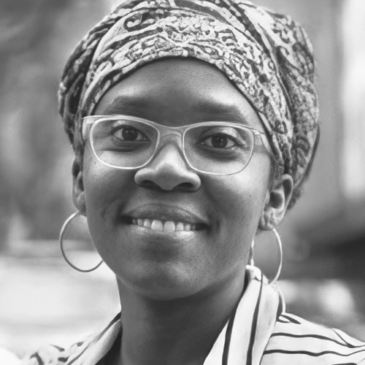
Ann Charles Vegdahl went to the University of Connecticut, where she earned a B.S. in Molecular and Cell Biology in 2011. She went on to pursue her Ph.D. in Microbial Biology at Rutgers University in 2017. Dr. Vegdahl’s research primarily focuses on microbial contamination of fresh produce and quantitate microbial risk assessment. She currently works as an Extension Associate and Process Authority at the Cornell Food Venture Center, where she provides assistance in food safety and stability as well as regulatory compliance to small food manufacturers in New York state, helping to bring new food products to the market yearly. On personal note, Dr. Vegdahl enjoys a fresh cup of coffee in the morning, spending time with her family, knitting/crocheting, and running.
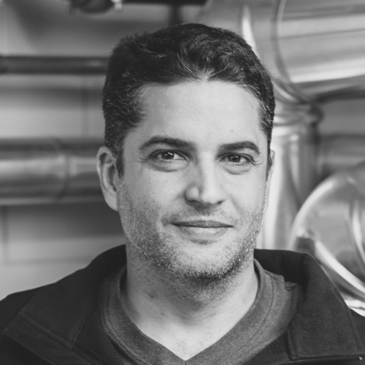
Bruno Xavier is a food engineer with a Ph.D. in Microbiology (Cornell University, 2008). He previously worked as a postdoctoral associate at the Milk Quality Improvement Program (Cornell University, 2008-2009) and as a university professor (UFSJ, 2009-2016), where he taught courses related to biotechnology and industrial microbiology. Dr. Xavier currently works as a Senior Extension Associate and Process Authority at the Cornell Food Venture Center, which provides training in food processing and safety to food manufacturers and regulators as well as product development and safety validation services to food companies in New York state and beyond, helping to bring more than 2,000 products to market yearly.
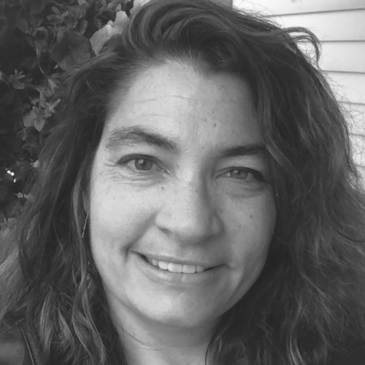
Cynthia James received her B.A. in Design of the Environment from the University of Pennsylvania and her M.S. in Sustainable Food Systems from Green Mountain College. Originally from Reading, Pennsylvania, Ms. James has been working in the field of sustainable food systems for over 20 years. Her work has included growing organic food for direct-to-consumer markets in both urban and rural settings, as well as developing and conducting education programs for new farmers, urban gardeners, college students, and youth. Before relocating to New York with her family in 2017, Ms. James spent six years at the Rodale Institute in Kutztown, PA, where she designed and ran a community-supported agriculture (CSA) model that focused on bringing affordable fresh food to underserved urban communities and doubled as a training program where new farmers gained skills in diversified organic growing practices as well as business planning. When Ms. James joined Cornell’s Food Venture Center team in 2018, she expanded her knowledge base from raw agricultural products to value-added products by working with the Process Authority in helping to validate food products for safety and stability. She currently manages the development of the program’s online certificate training program.

Tom Schryver is the Executive Director of the Cornell Center for Regional Economic Advancement (CREA) and a Visiting Lecturer at the Johnson Graduate School of Management. CREA’s programs include Rev: Ithaca Startup Works, the Southern Tier Startup Alliance, and support of Cornell’s regional economic advancement efforts. Mr. Schryver leads the Upstate NY I-Corps Node and is the lead instructor for Cornell Engineering’s Commercialization Fellows program. He serves on the teaching team for eLab, Cornell’s student business accelerator, and teaches entrepreneurship and business strategy at Cornell.
Mr. Schryver is an experienced entrepreneur, having served as a startup founder and senior finance executive of high-growth companies. Previously, he was Director of Finance for the Triad Foundation, where his responsibilities included investing the Foundation’s $250m portfolio to top-quartile returns. Mr. Schryver’s board affiliations include the Cornell Agriculture and Food Technology Park and Tompkins County Area Development, and he serves as board vice-chair of the Business Incubator Association of New York State.
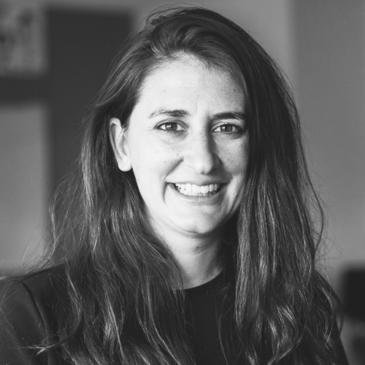
Andrea Ippolito is a lecturer in the Engineering Management Program at Cornell University as well as the founder and Director of Women Entrepreneurs Cornell (W.E. Cornell). Additionally, she is currently the founder and CEO of SimpliFed, a company supporting every family on the baby-feeding journey.
Prior to joining Cornell, Ms. Ippolito served as the Director of the Department of Veterans Affairs Innovators Network within the VA Center for Innovation. She completed her M.S. in Engineering and Management at MIT. Prior to MIT, Ms. Ippolito worked as a research scientist within the Corporate Technology Development group at Boston Scientific. She obtained both her B.S. in Biological Engineering in 2006 and Master’s of Engineering in Biomedical Engineering in 2007 from Cornell University.
- View slide #1
- View slide #2
- View slide #3
- View slide #4
- View slide #5
- View slide #6
- View slide #7
Key Course Takeaways
- Analyze the genetic basis for variation in plant traits and how those genes are inherited
- Apply breeding techniques and selection schemes for the development of new hemp cultivars
- Understand and apply relevant intellectual property law to the protection of new hemp cultivars

Download a Brochure
Not ready to enroll but want to learn more? Download the certificate brochure to review program details.
What You'll Earn
- Hemp Genetics and Breeding Certificate from Cornell CALS
- 60 Professional Development Hours (6.0 CEUs)
Watch the Video
Who Should Enroll
- Horticulturists
- Agronomists
- Plant, seed, and greenhouse technicians
- Growers
- Consultants
- Seed purveyors
- Plant breeders and breeding companies
- Entrepreneurs
- CBD product developers
- Agriculture regulators

“This program was a breakthrough for me. I had a food product before starting the program without realizing that the product I was planning to develop was not safe. With the course facilitator’s guidance, I learned how to make my product safe. eCornell is a great platform for any professional who wants to continue learning at their own pace.”
Request Information Now by completing the form below.

Hemp Genetics and Breeding
| Select Payment Method | Cost |
|---|---|
| $3,699 | |
